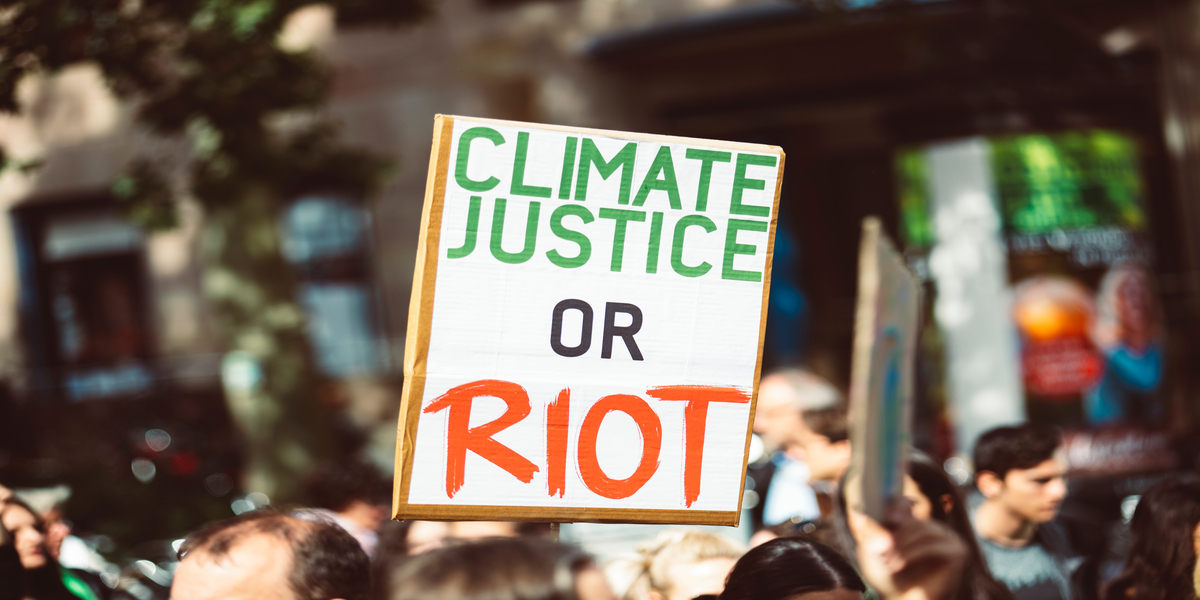The world’s debt and climate crises are closely linked, with both emergencies greatly affecting women’s rights and exacerbating gender inequalities. As a new debt crisis hits countries in the global south, governments and economies are finding it increasingly difficult to deal with the multiple crises the world is facing, which are also coming on the back of the Covid-19 shock and the war in Ukraine. These crises, all with their roots in capitalism, have had a significant impact on women and girls, particularly indigenous and women of colour. They are disproportionately impacted by and – vulnerable to – climate change, and endure the harshest impacts of the debt crisis.
Shock absorbers
When governments cut public services’ spending, due to increasing debt payments, it undermines their capacity to provide access to social protection programmes, domestic violence support programmes, maternity and childcare, food or energy subsidies and basic public services including education, health, housing, water and sanitation. The gravity of these cuts falls heavily on women, girls and gender minorities, particularly those who experience intersecting inequalities based on class, race, ethnicity, caste, and age.
Governments rely on the availability of women’s unpaid care and domestic work as a ‘shock absorber’ for public service cuts. Frankly, without women’s unpaid work, our societies would collapse under the weight of austerity. Women are also overwhelmingly represented in the public sector as workers, so austerity measures massively impact their ability to retain decent work and salaries. It’s estimated by Women in Health that, globally, during the Covid-19 crisis, up to six million women working in the health sector were either underpaid or not paid at all.
Despite this, governments are ploughing ahead with plans to implement austerity measures in 94 countries in the global south between 2023 and 2025. The International Monetary Fund (IMF) is behind many of these packages, with advice or imposed conditionalities to debt distressed countries. A recent Oxfam report revealed that ‘for every $1 the IMF encouraged a set of poor countries to spend on public goods, it has told them to cut four times more through austerity measures’. The lack of willingness amongst creditors to agree on debt cancellation for countries in crisis, is forcing them to spend more on repaying debts than on health or on climate action.
Without women’s unpaid work, our societies would collapse under the weight of austerity
The climate crisis is not gender neutral either: it amplifies existing gender inequalities and poses unique threats to livelihoods, health, and safety. For instance, climate change is already impacting ecosystems and food production systems, which has a particular impact on women in impoverished communities, as they are heavily dependent on those resources for their livelihoods. Cuts in food and energy subsidies, and land grabbing for agriculture and natural resources exploitation to repay external debts, further exacerbate these impacts.
We also need to consider that the impact of climate extreme events and environmental hazards increases the burden of unpaid domestic work for women as they need to invest more hours in securing water, food, and energy for cooking and for heating their homes. Additionally, when struggling with unsustainable debts, governments will find it difficult to reconstruct damaged routes and infrastructure caused by climate extreme events. This can mean that women are at a higher risk of living in unsafe and overcrowded shelters, given their lack of owned land or property, making them more vulnerable to all forms of gender-based violence, including human trafficking and child marriage.
Towards a new model
The world today faces several game-changing challenges, among which the climate emergency and the rise of new debt crises stand out, with a cumulative impact on women, girls and gender minorities. The core of the problem is the persisting neo-colonial and patriarchal economic dynamics, including the fossil fuel and growth obsessions of the capitalist system.
A fundamental shift in the global economy towards a new model that puts people’s rights at the centre, respecting the material and natural limits of the planet and atmosphere, is imperative to avoid further climate change. Furthermore, a fair response to the multiple crises in the global south should also address the recognition of climate and other ecological, social and historical debts that countries in the global north still owe.
Beyond the profound systemic change needed to redress the climate emergency and the unsustainable debt accumulation, there is an urgent need to reform how both the international financial architecture, and climate finance, works. These reforms should include the need for a multilateral sovereign debt resolution framework and substantial and unconditional debt cancellation, particularly for climate vulnerable countries.
The entire climate finance architecture needs to be reframed to focus on ownership, debt sustainability, economically-just climate finance flows, transparency and accountability. This would pave the way for a move away from development models that have prioritised growth and the interests of the financial sector.










